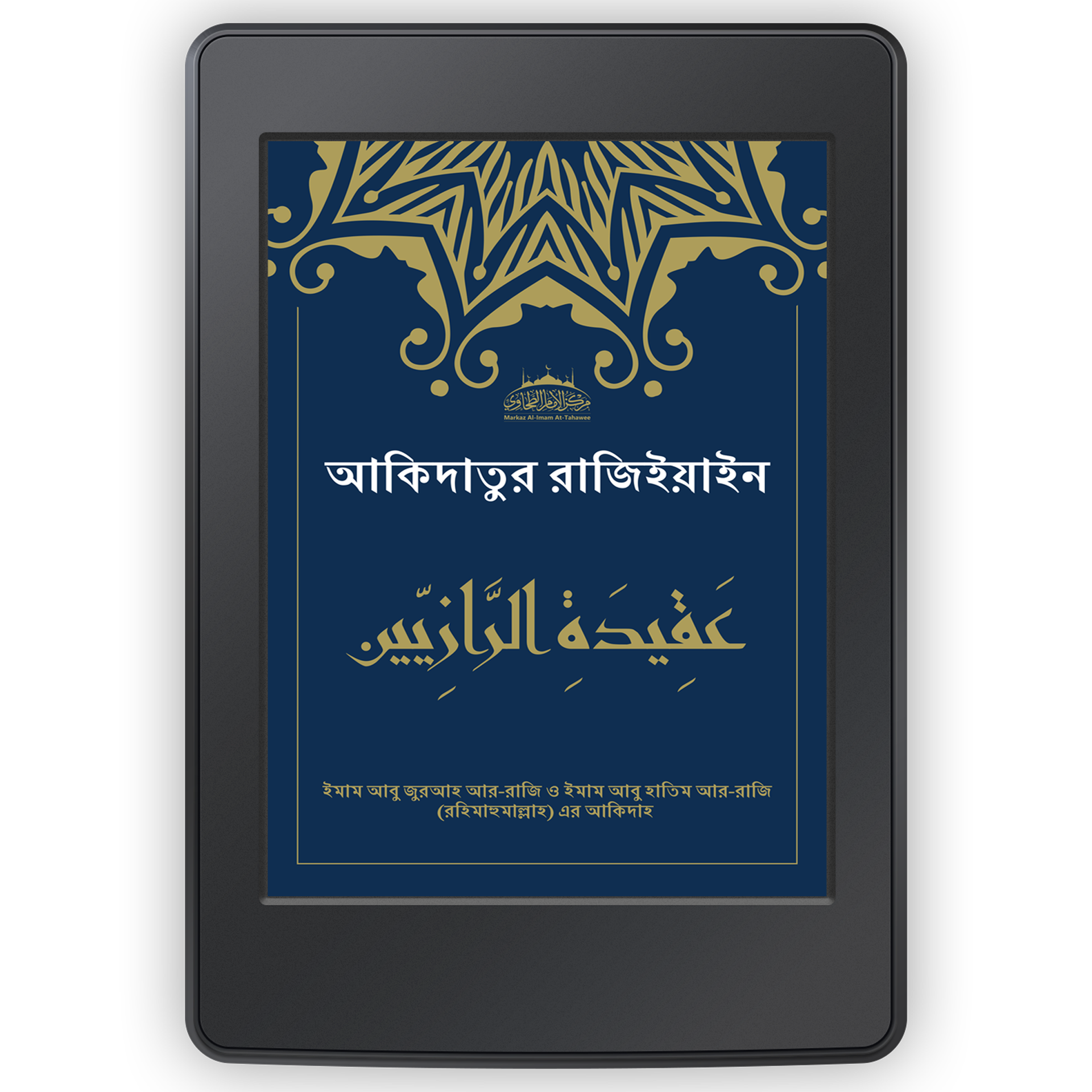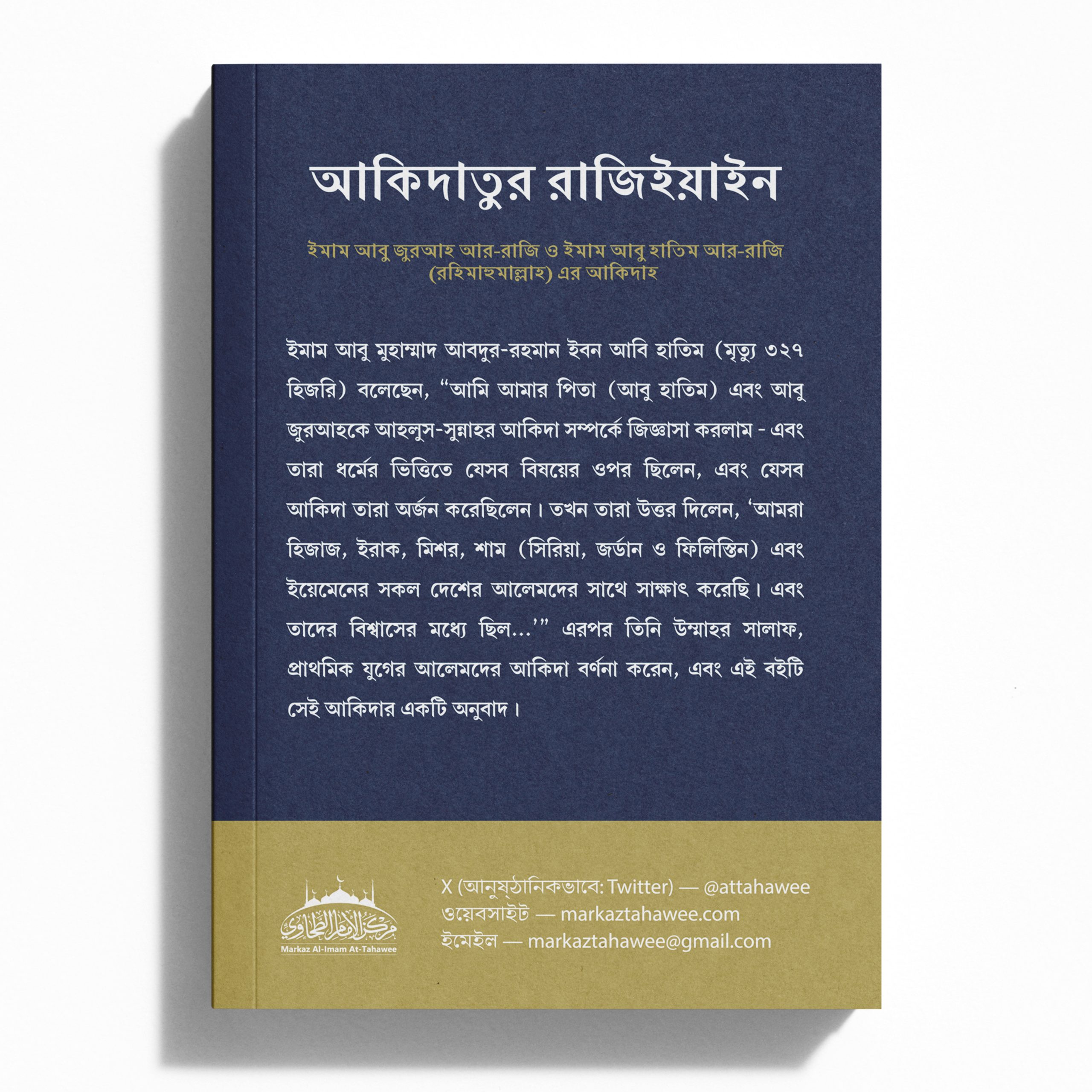ʿAqīdah al-Rāziyayn
Abū Zurʿah and Abū Ḥātim al-Rāzī
This seminal work that articulates the foundational beliefs of Ahlus-Sunnah wal-Jamāʿah as conveyed by the esteemed Imāms Abū Zurʿah and Abū Ḥātim al-Rāzī (رحمهما الله). This treatise serves as a vital link to the authentic creed of the Salaf, offering insights into the principles upheld by the early generations of Muslims. The accompanying commentary by Shaykh ʿUbayd al-Jābirī (رحمه الله) provides further elucidation, making this work an indispensable resource for those seeking to understand the pure Islamic creed as practiced by the pious predecessors.


About the Authors
Imām Abū Zurʿah al-Rāzī (809/810–878 CE) and Imām Abū Ḥātim al-Rāzī (811–890 CE) were esteemed Persian scholars of ḥadīth and theology, hailing from the city of Rayy in present-day Iran. Renowned for their profound knowledge and unwavering commitment to the authentic Islamic creed, they played pivotal roles in preserving and transmitting the teachings of Ahlus-Sunnah wal-Jamāʿah.
Imām Abū Zurʿah al-Rāzī, born ʿUbaydullāh ibn ʿAbd al-Karīm, was a pre-eminent muḥaddith whose expertise in ḥadīth criticism earned him great respect among his contemporaries. His extensive travels in pursuit of knowledge and meticulous approach to ḥadīth authentication significantly contributed to the Islamic scholarly tradition.
Imām Abū Ḥātim al-Rāzī, born Muḥammad ibn Idrīs, was a contemporary and close associate of Abū Zurʿah. He was esteemed for his deep understanding of ḥadīth and contributions to Islamic jurisprudence. His son, ʿAbd al-Raḥmān ibn Abī Ḥātim, became a notable ḥadīth scholar, furthering his father’s legacy.
